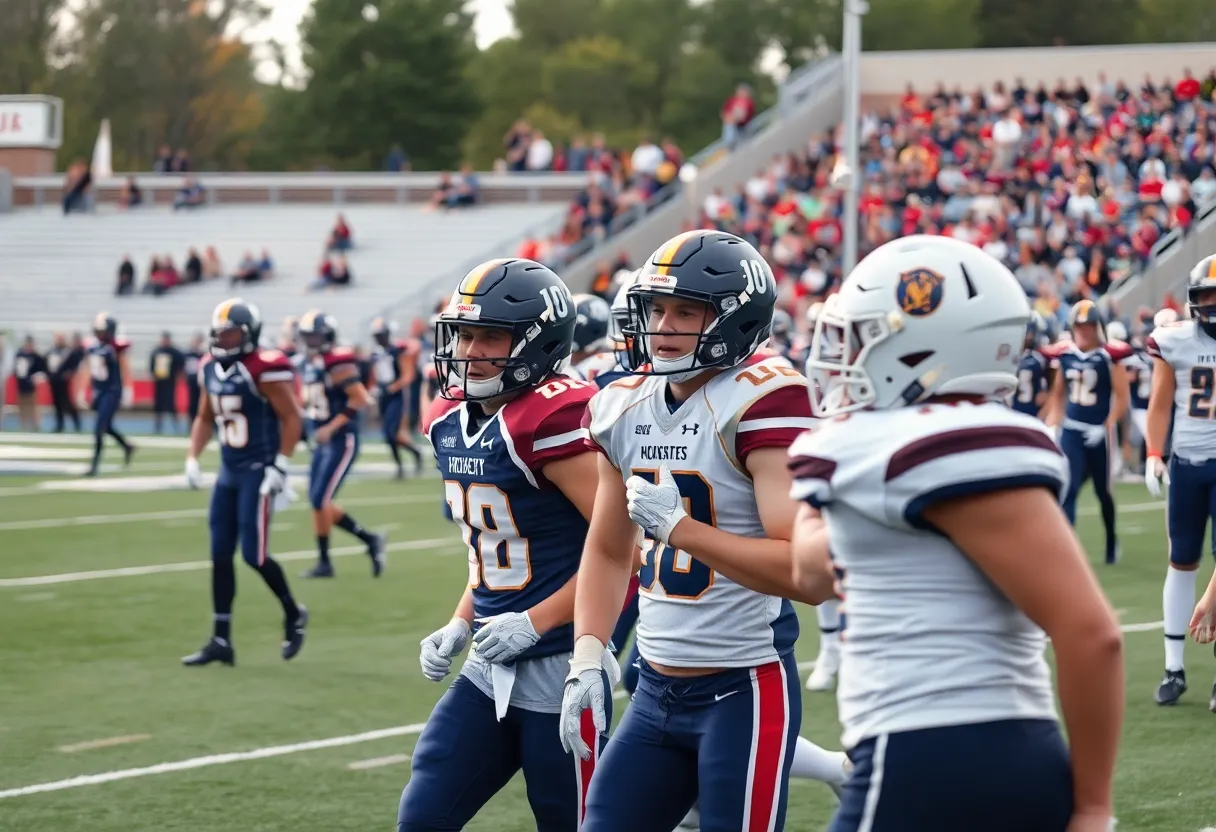News Summary
Louisiana is preparing to raise the tax on sports betting from 15% to 21.5% to generate over $24 million for athletic departments at public universities. This proposed legislation is awaiting approval from Governor Jeff Landry and aims to distribute funds equally among universities for scholarships, insurance, and facility enhancements. The move follows a significant NCAA settlement allowing universities to share revenue with athletes, and it positions Louisiana as a leader in funding college athletics through tax revenue from sports betting.
Louisiana is preparing to raise taxes on sports betting, a move aimed at generating over $24 million to support athletic departments at public universities. This proposed legislation is currently awaiting approval from Governor Jeff Landry and seeks to position Louisiana as the first state to increase taxation specifically for funding college sports in light of a recent NCAA settlement.
The legislation intends to raise the existing tax from 15% to 21.5% on net proceeds from online sports betting. It is estimated that roughly one-quarter of the projected $24.3 million generated from this tax will be distributed equally among the 11 public universities that host Division I football programs. These funds are earmarked for essential areas including scholarships, insurance, medical coverage, facility enhancements, and litigation costs associated with providing benefits to student-athletes. However, it is important to note that this tax revenue will not facilitate direct NIL payments (Name, Image, and Likeness) to athletes.
The introduction of new NCAA rules allowing universities to directly share revenue with athletes is set to take effect on July 1. In the first year of these new regulations, each Division I school will be allowed to distribute up to $20.5 million to athletes, though this figure may differ significantly between larger and smaller athletic programs.
This legislative initiative gained momentum shortly after a judge approved a landmark antitrust settlement. This settlement paves the way for direct compensation of athletes, which has garnered support from lawmakers and educators alike. Officials initially sought to double the tax rate but settled on the 21.5% figure to find a compromise that would still meet funding requirements while appeasing stakeholders.
The financial support from the newly increased tax aims to alleviate the budgetary strains experienced by athletic departments, especially those at smaller universities that face unique funding challenges. Louisiana joins North Carolina as the second state to allocate sports wagering tax revenues directly to support college athletics, reflecting a growing trend among states across the nation that are exploring similar funding methods.
Proponents of the tax increase argue it represents a fair return on investment, as these revenues are primarily generated by the contributions of student-athletes to their institutions. Amid increasing demands for revenue sharing and support for college athletics, other states, such as Arkansas, have also begun taking action to address these issues. Earlier this year, Arkansas waived income taxes on NIL payments to college athletes, further illustrating the momentum of this issue on a broader scale.
As Louisiana moves forward with the proposal, the implications could reshape the landscape of college athletics funding and the relationship between universities and their student-athletes, paving the way for a new era in how sports funding is approached at the collegiate level.
In conclusion, the proposed tax increase on sports betting in Louisiana reflects a strategic initiative aimed at enhancing financial resources for university athletic departments, setting a precedent that other states may follow as they grapple with evolving dynamics surrounding college sports funding.
Deeper Dive: News & Info About This Topic
- ABC News: Louisiana poised to hike sports betting tax
- Wikipedia: Sports Betting
- Front Office Sports: Louisiana Sports Betting Set to Aid LSU
- Google Search: Louisiana sports betting tax
- Times Daily: Louisiana poised to hike sports betting tax
- Google Scholar: Louisiana sports betting
- Sports Business Journal: Louisiana Seeking to Increase Sports Betting Taxes
- Encyclopedia Britannica: Sports Wagering
- LA Illuminator: Sports Gambling Tax Could Double in Louisiana
- Google News: Louisiana college athletics funding

Author: STAFF HERE NEWORLEANS WRITER
The NEW ORLEANS STAFF WRITER represents the experienced team at HERENewOrleans.com, your go-to source for actionable local news and information in New Orleans, Orleans Parish, and beyond. Specializing in "news you can use," we cover essential topics like product reviews for personal and business needs, local business directories, politics, real estate trends, neighborhood insights, and state news affecting the area—with deep expertise drawn from years of dedicated reporting and strong community input, including local press releases and business updates. We deliver top reporting on high-value events such as French Quarter Festival, New Orleans Jazz & Heritage Festival, and Essence Music Festival. Our coverage extends to key organizations like the New Orleans Chamber of Commerce and Greater New Orleans, Inc., plus leading businesses in energy, healthcare, and education that power the local economy such as Entergy, Ochsner Health, and Tulane University. As part of the broader HERE network, including HEREShreveport.com, we provide comprehensive, credible insights into Louisiana's dynamic landscape.

